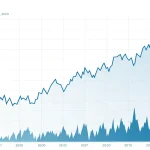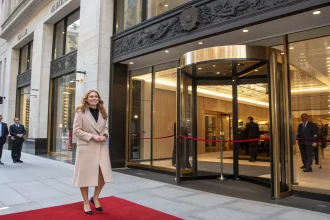Federal Reserve Chair Jerome Powell has firmly rejected President Donald Trump’s demands for his resignation, according to multiple sources close to the central bank leader. Powell has made it clear to associates and allies that he will not step down despite facing what insiders describe as an “unprecedented” campaign from the White House over monetary policy.
The conflict centers on Powell’s refusal to lower interest rates, a stance that has drawn increasing criticism from President Trump. Sources indicate that Powell is prepared to withstand several more months of pressure from the administration as the presidential election approaches.
The Interest Rate Standoff
The tension between the Federal Reserve and the White House has been building as Powell maintains his position on keeping interest rates steady. Economic analysts note that this decision reflects the Fed’s mandate to control inflation and maintain economic stability, rather than respond to political pressure.
“The independence of the Federal Reserve is a cornerstone of American monetary policy,” said one economist familiar with the situation. “What we’re seeing is a test of that independence in real-time.”
Trump has repeatedly criticized Powell through various channels, including social media and public statements, arguing that lower interest rates would boost economic growth ahead of the election. This multi-faceted pressure campaign represents a break from the traditional relationship between presidents and the Federal Reserve.
Constitutional Implications
Legal experts point out that the Federal Reserve was designed to operate independently from political influence. The Fed Chair serves a four-year term and can only be removed “for cause,” which typically involves misconduct rather than policy disagreements.
Powell, who was nominated by Trump in 2017, has received support from both Democrats and Republicans in Congress who have expressed concern about the president’s attempts to influence monetary policy.
“The Federal Reserve must make decisions based on economic data, not political pressure,” stated a senior banking committee member who requested anonymity. “That’s how our system is designed to work.”
Market Response
Financial markets have been watching the conflict closely, with some analysts suggesting that Powell’s stance has actually helped maintain investor confidence in U.S. markets.
The standoff has created three main concerns for market participants:
- Potential volatility if leadership at the Fed changes unexpectedly
- Questions about long-term central bank independence
- Uncertainty about future monetary policy direction
Despite these concerns, markets have remained relatively stable, which some interpret as a vote of confidence in Powell’s leadership and the Fed’s independence.
The conflict between Powell and Trump highlights the tension between short-term political goals and long-term economic stability. While presidents often prefer accommodative monetary policy during election years, the Federal Reserve’s mandate requires a focus on controlling inflation and maintaining sustainable growth.
As the election approaches, Powell appears determined to maintain the Fed’s independence and make decisions based on economic data rather than political pressure. His allies indicate he is prepared for the criticism to intensify but remains committed to serving his full term regardless of the president’s demands.









